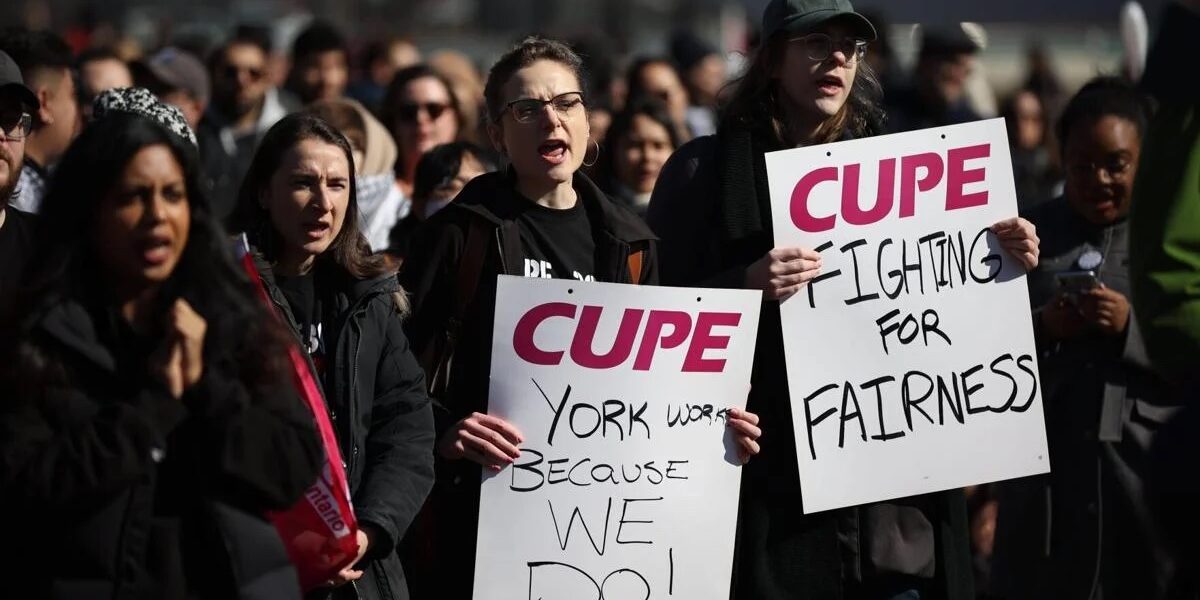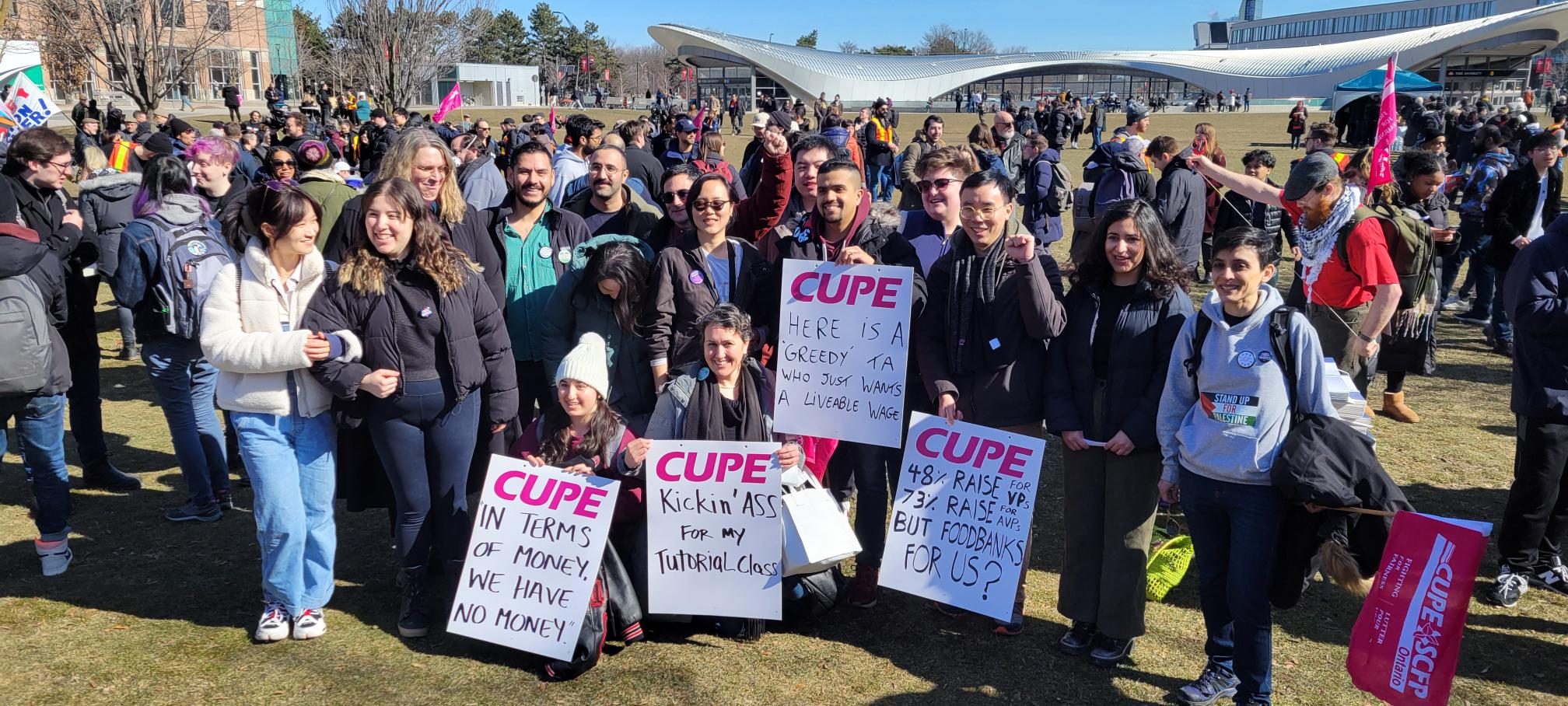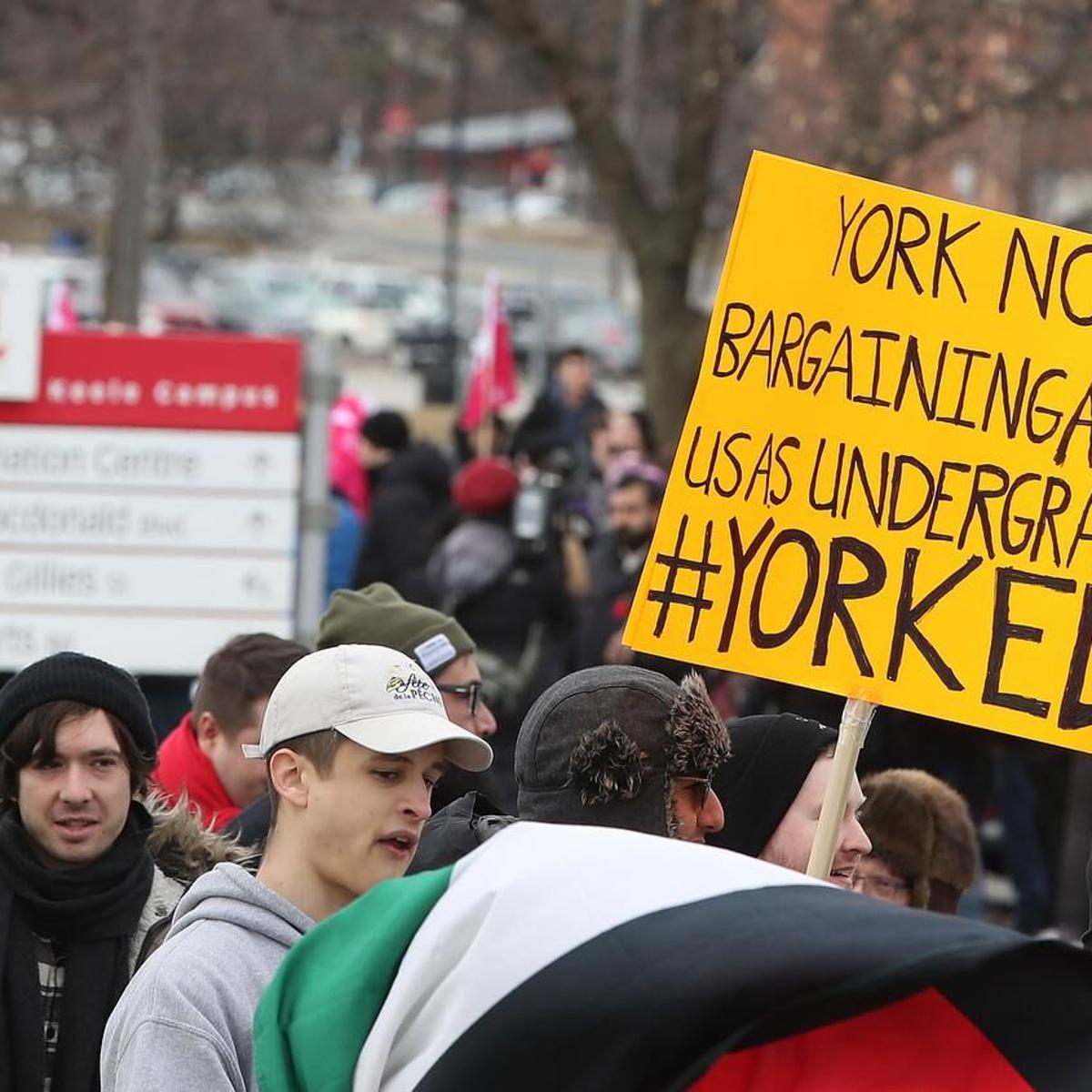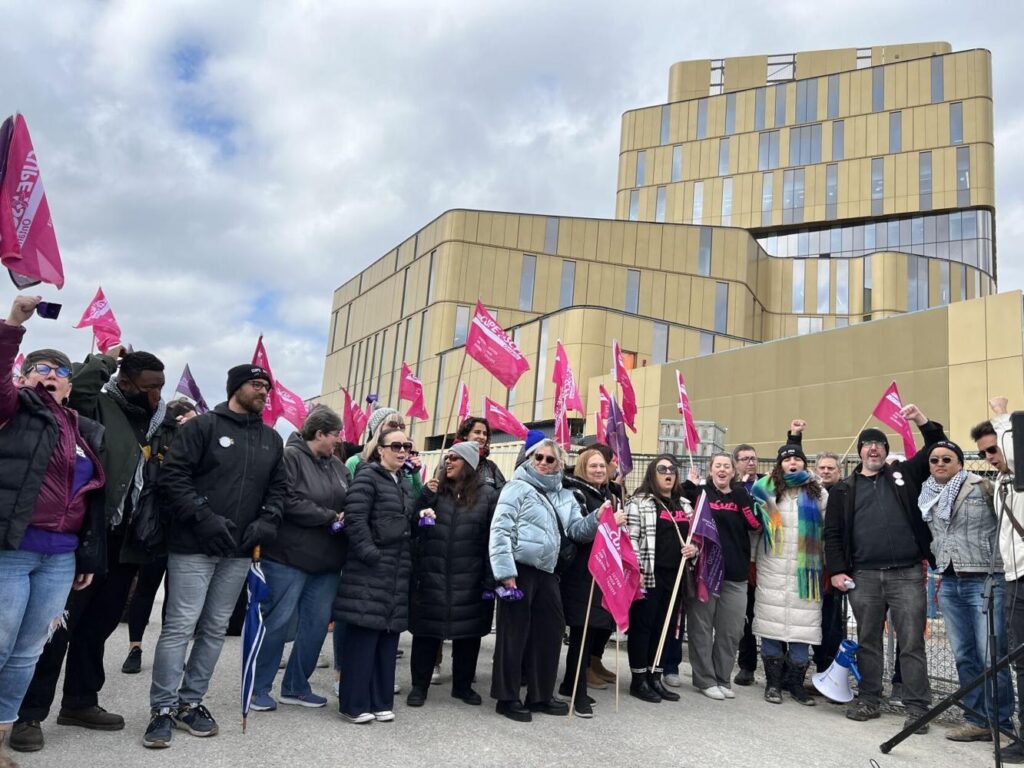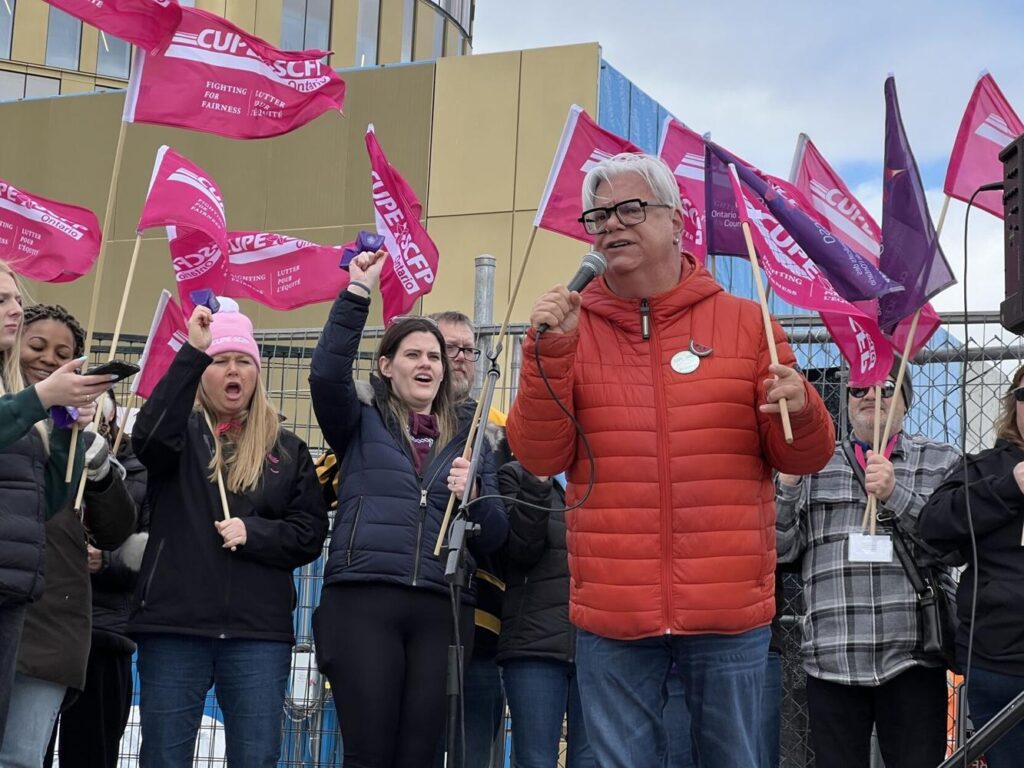Voices Unveiled in the York University Strike
Amidst the pulsating rhythm of academic life at York University, a tapestry of voices emerges, weaving together the narratives of academic workers and students alike amidst an unprecedented strike. The journey begins with Erin McIntosh, a spokesperson for CUPE 3903 and a PhD student, whose resolute words pierce through the tension-laden air, declaring a collective call for change. “We’re not just fighting for ourselves; we’re fighting for the future of academia,” McIntosh proclaims, her voice echoing the sentiments of thousands embroiled in a struggle for fair compensation amidst the rising living costs in Toronto.
York University is currently facing a strike where academic workers have walked off the job due to failed negotiations on a new collective agreement. “Workers walking out was the only thing that stopped bad education and labour policy in its tracks,” said Joe Tigani, an education assistant at a high school in Stratford. The strike, initiated by CUPE 3903, aims to address issues such as inadequate wages in the face of rising living costs in Toronto. Through the perspectives of individuals affected by the strike, including academic workers like Erin McIntosh and students like Josslyn Henry, the narrative explores the impact of the strike on both academic progress and mental well-being. It delves into the challenges faced by students, such as disruptions to their learning experience and concerns about graduation timelines, while also shedding light on the broader implications of the strike for academia and society. Through their voices, the story highlights themes of resilience, uncertainty, and solidarity amidst a backdrop of negotiations and advocacy for change.
On Monday, February 26th, 2024, around 3,000 York University academic workers went on strike. CUPE 3903 declared this strike when the university failed to reach a deal on a new collective agreement, overall providing workers with wages that reflect the current cost of living. There is no set end date for this unprecedented strike, as both parties engage in a high-stakes negotiation that could reshape the future of jobs on campus. “These skilled, talented, passionate workers do more than half of the instruction at York University, and yet their wages condemn them to poverty,” said CUPE Ontario president Fred Hahn.
On March 27th, the university sent out a letter to the CUPE 3903 bargaining team, letting them know they would not be able to reach an agreement due to their “unrealistic” proposals. York stated that CUPE 3903, Units 1, 2, and 3, represented-employees are among the highest paid in the Ontario University sector and receive the best benefits in said sector. They also included that throughout the course of bargaining, they have proposed several wage increases in which CUPE has declined. York also stated the following in regards to moving forward with an agreement “We will not be able to achieve an agreement with CUPE 3903 given the Union’s current positions on substantive issues and its inability to provide timely responses during bargaining.”
Important information regarding the York University strike, created using TikTok.
The main reason for the strike is to raise workers’ wages to be able to afford the high cost of living in Toronto. According to Erin McIntosh, spokesperson for CUPE 3903 and a PhD student at York, both teaching and graduate assistants in particular, struggle with the current wages and are at a “breaking point.” She added. “We’re not just fighting for ourselves; we’re fighting for the future of academia, for fair compensation that reflects the dedication and hard work we put into shaping the next generation of thinkers.”
According to an article written by CUPE 3903, York University is refusing to address the affordability crisis caused by rising housing and food prices at the same time that wages on campus have stagnated. More and more, academic staff are living further from campus and being forced to work other jobs to make ends meet. This exacerbates the challenges faced by York University’s workers, making their lives that much harder.
The strike has leveraged so much attention from educational workers from other schools that these workers from elementary schools and highschools nearby have joined in in the movement. Over a hundred elementary and high school employees from across the province gathered to support the York University academic workers, chanting for fair wages. “This is not a sustainable model. It’s not sustainable for workers. It’s not sustainable for students. It’s not sustainable for our future.” Said Hahn.
Ashley D’Souza, president of the York Federation of Students, said most members he has spoken with support the striking workers, about half of whom are students themselves. According to D’Souza, CUPE 3903 is simply trying to arrange a deal that allows them to survive in a city that is increasingly difficult to survive in.
This strike is not only having a pivotal impact on the lives of the workers at York University but on students as well. York has stated plans for keeping university operations in place and assured that courses and ongoing academic activities “that can continue, will continue.” Although for many students, this strike has already affected their education. York University undergraduate student Josslyn Henry discusses the impact this strike has had on both her academic progress and overall educational experience.
“As it was, I was already struggling in my classes, but now that we won’t be in school for who knows how long, I’m worried about even being able to maintain a passing grade,” said Henry. For many, being in class face-to-face with professors is essential for their learning and understanding of particularly challenging concepts.
Not only does this strike affect students’ academic success and progress, but it also plays a role in their mental health. According to DeLeon Gray, an associate professor at NC State University, a sense of belonging at school means feeling a sense of acceptance, respect, inclusion, and support in a learning environment. Students who don’t feel a sense of belonging often struggle to devote their full cognitive resources to tasks and experience issues with emotional wellness.
Henry also adds how not being able to attend classes in person anymore has affected her social life and overall plays a significant part in her mental health. “Not being able to see my friends and even just speak to my classmates has been hard on my mental health. I notice pretty big changes in my mood when I’m surrounded by people, as opposed to when I’m alone.”
A big part of university is the social aspect and the large community it fosters. For many individuals, a university’s social life is a significant reason for them to attend, and without it, it may begin to cause an increase in drop-out rates towards the institution.
Undergraduate student Olivia Lavin talks about her worries regarding the strike and how it will affect her overall academic success. “This impacts my academic progress by now making me at risk of falling behind and potentially needing to take summer school if it goes on much longer during my final year.” Said Lavin. Students scheduled to graduate this year are worried that the longer the strike goes on, the more behind they will fall, ultimately resulting in them potentially not graduating on time.
Lavin also mentioned her frustration towards the strike, as it is not only pushing back on her academic progress but also impacts her educational experience as she’s not being able to learn the subjects she signed up for and attend the courses she’s enrolled in. The strike is causing a lot of frustration for students who wish to simply complete their mandatory courses and graduate as soon as possible.
Another undergraduate student, Tami Obassanya, shared that her biggest struggle caused by the strike is the inability to do in-person learning. She mentioned that this is the way she learns concepts best and worries that without it, her grades will ultimately drop. This isn’t just the case for Obassanya; for many, in-person learning is essential to better grasp challenging concepts and ultimately perform better due to a series of different reasons. According to an Asbury College article written by Liam Teows, there are a wide number of possible distractions followed by online education. Whether it be social media, video games, TikTok, or YouTube videos, it requires an enormous amount of willpower to stay on task and not get distracted, and many students simply don’t have the willpower to do so.
Amidst the strike, a tapestry of voices emerges, weaving together the challenges faced by both academic workers and students, all calling for change. Beyond the negotiations, this movement sheds light on the tough realities of academic staff grappling with Toronto’s high living costs. Erin McIntosh’s belief that this fight goes beyond individual interests reflects a deep commitment to reshaping academia’s future. As students like Josslyn Henry express their worries, the impact on academic progress and well-being becomes evident, underscoring the importance of a supportive community. Frustrations voiced by Olivia Laskin and others highlight concerns about timely graduation and social connections. This strike tells a story of intertwined lives and dreams, demanding understanding, compassion, and a fresh approach to education, leaving a lasting impression on York University’s history.

